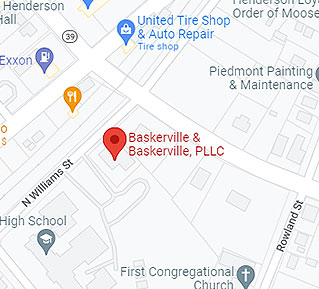
What Exactly Is Estate Planning And Why Do We Need It? What Happens To Our Assets If We Do Not Properly Plan For Our Assets Before We Die?
The estate planning is an area of the law that deals with your estate, which is everything that you’ve accumulated during your lifetime. That includes real estate, personal property, automobiles, homes, insurance policies, bank accounts, consumer debt, credit card debt, hospital bills, and all other types of debt. Overall, your estate is all the assets and liabilities you’ve accumulated during your lifetime. You want to ensure the legacy you have worked hard for is treated as you wish. You don’t want to let anyone else determine what happens to your estate. Without an estate plan in place, the state of North Carolina will determine how your assets are distributed and to what beneficiaries.
A proper estate plan also includes a will. A will is the document that indicates what you desire to happen to your house, who will get your car, and even very specific details such as who you want to acquire the family heirloom. These and more are all things you can put in a will.
Oftentimes, families believe there are no quarrels before someone passes away without creating a will. This may seem like the case, but it’s common for conflicts to arise as soon as someone dies. If you don’t have every detail in a will, it’s possible for rifts to form in the family. Due to this, there is often confusion and bickering at a most vulnerable and grief-stricken moment. When we are mourning the loss of a family member, that is not the time where we are in our best state of mind to think through how we should handle an entire lifetime of accumulated assets. That’s why it’s critical to already have a plan in place, much ahead of time.
In addition to a will, a proper estate plan includes a power of attorney. A power of attorney is the letter that outlines the person allowed to manage various aspects of your life in the case that you are no longer able to make decisions on your own. The responsibilities may include real estate transactions, banking transactions, insurance transactions, IRS transactions, social security administration and more.
If you don’t have these legal instruments in place, your property will pass according to what’s called Intestate Succession, which is a chart in the general statutes. Intestate Succession is a default line of successors that are considered to be responsible for decisions on your behalf. If the spouse is not allowed or living, then succession goes to the children. If there were no children alive, then it goes to the grandchildren. If there are no grandchildren, then it goes to the parents, if they’re still alive. If their parents are not alive, then it goes to the siblings. If the siblings are not alive, then it goes to the siblings children. You can see how robotic the default sequence is when your property passes through Intestate Succession. It is not necessarily tailored to your individual circumstances.
More Information:
For more information on Estate Planning In North Carolina, an initial consultation is your next best step. Get the information and legal answers you are seeking by calling (252) 572-4495 today.

(252) 572-4495
